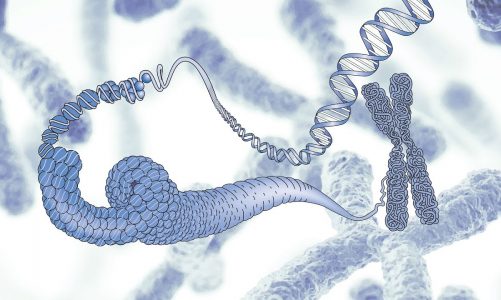In this episode, Rick Johnson, professor of nephrology at the University of Colorado, explains how his research into the causes of blood pressure resulted in a change of research direction to focus more on how fructose has such profound metabolic effects. Rick begins by talking about the relationship between salt and high blood pressure, then provides a masterclass into uric acid, and then expertly reveals the mechanisms and pathways by which sugar (specifically fructose) can profoundly impact metabolic health. From there, he explains how he applies this information to real life patients as well as touches on some of the most promising ideas around pharmacotherapy that are being developed in response to the epidemics of fatty liver, insulin resistance, diabetes, and obesity. Furthermore, Rick gives his take on artificial sweeteners compared to real sugar, discusses cancer’s affinity for fructose, and much more.
Subscribe on: APPLE PODCASTS | RSS | GOOGLE | OVERCAST | STITCHER
We discuss:
- The connection between blood pressure and fructose that shifted Rick’s professional focus [4:00];
- The relationship between salt and blood pressure (and the role of sugar) [5:45];
- Defining fructose, glucose, and sugar [19:30];
- An ancient mutation in apes that explains why humans turn fructose into fat so easily [23:00];
- The problems with elevated uric acid levels, and what it tells us about how sugar causes disease [31:30];
- How sugar causes obesity—explaining the difference in glucose vs. fructose metabolism and the critical pathway induced by fructose [40:00];
- Why drinking sugar is worse than eating it [50:00];
- Unique ability of sugar to drive oxidative stress to the mitochondria, insulin resistance, and diabetes [54:00];
- Why cancer loves fructose [1:00:20];
- The many areas of the body that can use fructose [1:05:00];
- Fructokinase inhibitors—a potential blockbuster? [1:07:15];
- Treating high uric acid levels—Rick’s approach with patients [1:10:00];
- Salt intake—what advice does Rick give his patients? [1:16:30];
- How excess glucose (i.e., high carb diets) can cause problems even in the absence of fructose [1:21:00];
- Artificial sweeteners vs. real sugar—which is better? [1:29:15];
- Umami, MSG, alcohol, beer—do these have a role in metabolic illness? [1:33:45];
- Fructose consumption—Is any amount acceptable? Is fruit okay? Where does Rick draw a hard line? [1:38:45]
- How does Rick manage the sugar intake of his young kids? [1:43:00]; and
- More.
§
The connection between blood pressure and fructose that shifted Rick’s professional focus [4:00]
- It started with looking into the cause of high blood pressure
- The running theory for years was that the kidney has a defect in its ability to excrete salt and so that you end up retaining salt and that leads to elevated blood pressure
- Rick then figured out that when you raise uric acid in animals, they developed high blood pressure
- So what made uric acid go up? ⇒ Sugar, and particularly fructose, raised uric acid
“We started studying fructose and pretty soon we were so excited about what we were finding that we just kind of changed our research direction to focus more on how fructose has all of its metabolic effects.”
The relationship between salt and blood pressure (and the role of sugar) [5:45]
Does salt raise blood pressure?
- The prevailing thought is that too much salt elevates blood pressure
- And the advice would be to restrict the amount of salt intake
- But it isn’t really the salt amount that makes a difference, but the salt concentration
- When you eat salt, your serum osmolality goes up
- If you drink water in combination with eating salt, you can avoid this rise in serum osmolality and avoid the rise in blood pressure
- Rick’s 2018 study showed that drinking water with a salty meal will prevent a rise in blood pressure
Why it would be better to have a lower blood pressure?
- When your blood pressure is high, you have an increased risk for heart failure and stroke.
- As your blood pressure increases, you get a gradual increase in risk
- But when the blood pressure gets around 160 to 180…
{end of show notes preview}

Rick Johnson, M.D.
Rick is a professor of medicine in the Department of Nephrology at the University of Colorado since 2008 and he’s spent the last 17 years being a division chief across three very prestigious medical schools. An unbelievably prolific author, Rick has well over 700 publications in JAMA, New England Journal of Medicine, Science, et Cetera. He’s lectured across 40 countries, authored two books, including The Fat Switch, and has been funded extensively by the National Institute of Health (NIH). His primary focus in research has been on the mechanisms causing kidney disease, but it was in doing this that he became really interested in the connection between fructose (and fructose metabolism) and obesity, diabetes, heart disease, hypertension, and metabolic disease.


